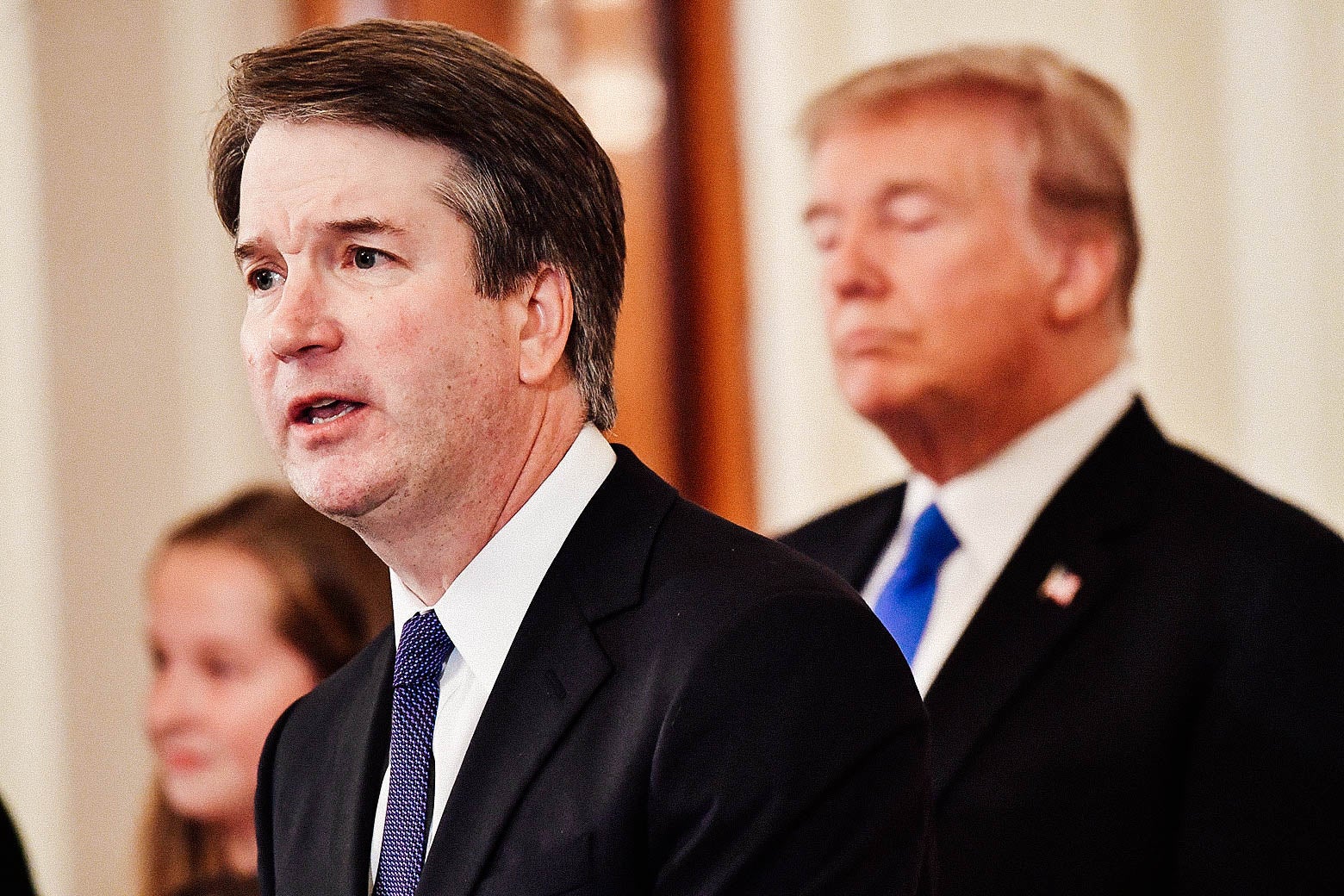President Trump made his second Supreme Court selection in the first 18 months of his presidency Monday night choosing Brett Kavanaugh of the U.S. Court of Appeals for the District of Columbia Circuit to fill the seat of retiring Justice Anthony Kennedy. The selection of the 53-year-old who once clerked for the man he is replacing came during a prime time announcement from the White House Monday night, after Trump had reportedly winnowed the field down to a shortlist of four candidates: Thomas Hardiman of the 3rd Circuit in Pennsylvania, Raymond Kethledge of the 6th Circuit in Michigan, 7th Circuit judge Amy Coney Barrett, and Kavanaugh.
“A longtime foe of former President Bill Clinton and a former aide to President George W. Bush, Kavanaugh is favored by many conservatives and has served on the D.C. Circuit Court since 2006, bringing with him a long record of conservative jurisprudence,” Politico reports.
“Kavanaugh, a graduate of Yale Law School, cut his teeth under former Independent Counsel Kenneth Starr, who led the investigation that ultimately resulted in Clinton’s impeachment. Kavanaugh himself was a lead author of the controversial Starr Report.” When nominated to the court of appeals in 2003, Senate Democrats on the Judiciary committee blocked the Bush appointee’s confirmation for nearly three years because of the partisanship woven into his work history. Kavanaugh was later confirmed in 2006.
Kavanaugh will face a typically bruising, but likely successful nomination battle, barring some sort of bombshell. The nomination process will be particularly contentious because of the implications of replacing a justice that occupied the middle ground on the court with a more conservative pick that could have significant ramifications for the country generally, as well as abortion rights specifically. The White House has selected former Arizona senator Jon Kyl to guide the nomination process for Kavanaugh, which requires navigating a potentially narrower path to confirmation than normal, as Sen. John McCain may miss the vote as he battles brain cancer.
If McCain does not vote, that would mean the White House can afford to lose just one vote if the rest of the caucus holds the party line. There is a strong possibility some portion of Democrats fighting for reelection in deep red states, like West Virginia’s Joe Manchin, North Dakota’s Heidi Heitkamp, Alabama’s Doug Jones, and Indiana Senator Joe Donnelly, would vote for confirmation, particularly if it looked like a foregone conclusion. Each voted to confirm Trump’s previous pick, Neil Gorsuch, except for Jones, who had not taken office yet. That puts the onus of confirmation squarely on the shoulders of Republican Senators Susan Collins of Maine and Alaska’s Lisa Murkowski, both of whom have bucked party allegiance and gone against Trump in the past, and have supported abortion rights.
